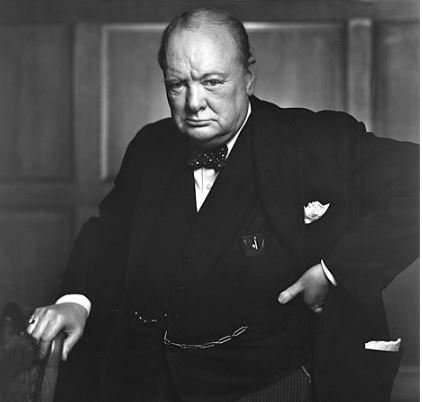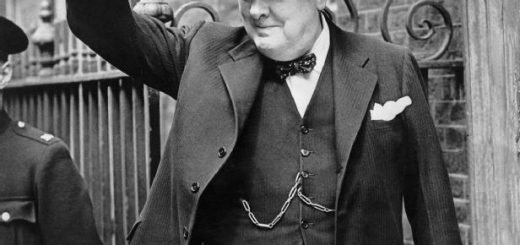6 Major Accomplishments of Sir Winston Churchill

Sir Winston Churchill – Major Achievements
He was a great U.K politician who led Britain to emerge victorious in World War 2. At that time (1940-1945), he was the Prime Minister. Churchill was also a writer, a soldier, and a 5-time elected Parliamentarian. The following are six major accomplishments of Sir Winston Churchill:
Minimum Wage
Winston Churchill’s road to statesmanship actually started in 1900, when he was selected as an MP to represent the Oldham constituency. He joined the cabinet and became a leading member who headed the Trade Board. In this position, Churchill formulated an act which limited mining hours to eight in a day. In 1901, his presidential position in the Trades Board allowed him to institute a threshold for wages in Britain. This minimum wage mandate covered a lot of workers in diverse industries. Within the same year, a labor act was passed to reduce unemployment. As a parliamentarian, Churchill did not vote in favor of the government’s bloated army expenditure. He wanted the government to channel its military budget to the Navy.
Home-Secretary and Prison Reforms
In 1910, Churchill was elevated to the position of “Home Secretary”. This gave him the authority to oversee the works of the cops and prison officers. He introduced prison laws which clearly distinguished political prisoners from criminals; this reduced the punishment meted out to political prisoners. Churchill made attempts to improve the lives of prisoners, by proposing that, prison libraries should be built for the inmates. He was the first home secretary to call for entertainment centers and lecture rooms for prisoners.
He empathized with prisoners by reducing the jail time of first-time offenders to 1 month, while repeat offenders were limited to 3 months’ jail sentences. Churchill strongly criticized the indiscriminate imprisonment of people who committed lesser crimes. In his position as home secretary, he stopped the mandatory imprisonment of offenders who could not settle their fines. In Churchill’s tenure, young offenders (aged 16-21) were pardoned in cases for committing lesser crimes.
Became the Lord of the Admiralty
In 1911, Winston Churchill got a naval appointment as “First Lord of the Admiralty”. He resided in London and spent his first two years in office, rebuilding the country’s Navy. While hell-bent on redeveloping his Navy, Churchill closely monitored the activities of the German Navy. Upon realizing that German engineers were given the green light to manufacture more warships, Churchill put measures for the U.K to counter the Germans. He, however, opened the gate for diplomatic talks between the two countries, in the hope of preventing war.
Germany refused to oblige to the peace offer. By the direction of Winston Churchill, the U.K. built submarines for its Navy. The British air force was tasked with engineering ways to employ airplanes during a war event. Churchill has been credited with conceptualizing the terminology “seaplane”. He personally took flying lessons and threatened to vacate his seat if the government failed to endorse his request for new warships to be built for the Navy.
Role in World War 1
After the brutal assassination of an Austrian ruler (Franz Ferdinand) in 1914, Sir Winston Churchill began to prepare his country for war. It was the German invasion of Belgium that welcomed Churchill and his men into the war. Using Navy ships, hundreds of thousands of British soldiers were transported to France to fight in the war. Churchill used his Navy to block Germany from transporting food materials to its ports in the North Sea. British submarines traveled to support the Soviet Navy to fight German ships in the Baltic Sea.
In September 1914, Churchill was given full control to head the air force department of the U.K. He developed tactical military strategies and ensured that the U.K. contributed to its allies. Churchill famously hacked an invasion plan on Gallipoli, Turkey. Unfortunately, his plan turned out to be a bad idea, resulting in more than 250,000 ally casualties. After almost 4 years of warring, the U.K. and allies (U.S, Russia, and France) put enough pressure for Germany to surrender in 1918, ending the First World War.
MORE:
Prime Minister
With the rise of Adolf Hitler and his Nazi party to power in 1933, many nations predicted the occurrence of World War 2. Winston Churchill became a U.K Prime Minister in 1940. But that time, World War 2 had already exploded. Being a military expert and a soldier, Churchill returned to lead the Navy. Under his command, the U.K joined hands with the allied forces to combat Germany. He created a ministerial position for himself as “Minister of Defense”.
Churchill knew that if the U.K and the allied forces desired to win the war, there was a need for them to use more sophisticated warfare technologies. Fighter planes were engineered and used for the war. By 1944, the U.K and its allies were inching close to victory; the allied forces began to push retreating Hitler soldiers back to Germany. When Germany, Japan, and their allies ran out of strength, they surrendered in 1945, ending the Second World War.
Winston Churchill addressed huge crowds in jubilation. He was given much credit for being the brain behind the allied victory. He returned to power as Prime Minister in 1951, until his health-related resignation in 1955.
Read More:
He Authored several Books and Received the Nobel Prize
Aside from his powerful orations which caught the attention and appeal of many people, Sir Winston Churchill was also a successful author. He wrote some autobiographical and history books; one novel, and 3 memoirs. In 1953, he received a “Nobel Prize for Literature”. The award was given to honor his vivid historical descriptions of the wars. He was honored as a knight by Queen Elizabeth II.
Death of Sir Winston Churchill
Churchill battled with depressions for many years, throughout his political and military career. His health kept deteriorating after winning a lot of wars. Winston gave up the ghost in 1965, at the age of 90. The United Kingdom remembers Churchill as one of its finest statesmen of the 20th century. He is often rated as the best and most famous Prime Minister of the U.K.
Read More: Top 10 British Prime Ministers of All Time


























